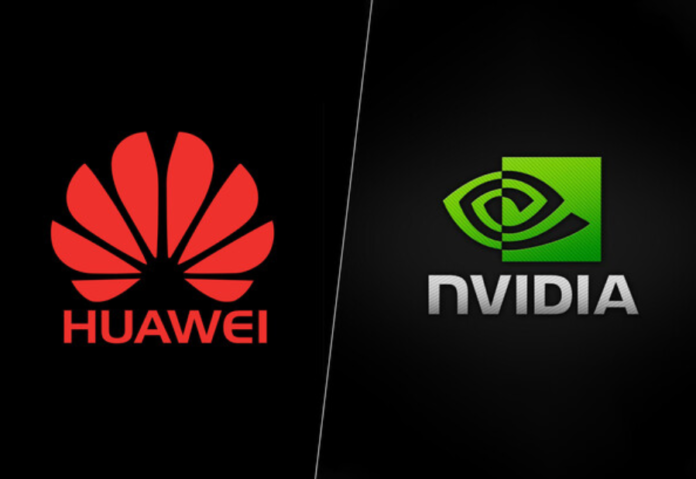For the first time, Nvidia recognized Huawei as a key rival in multiple areas, including artificial intelligence processors, in a filing with the Securities and Exchange Commission.
Nvidia named Huawei as a top contender in numerous areas, including artificial intelligence chips, for the first time in a filing with the Securities and Exchange Commission on Wednesday.
The Santa Clara, California-based corporation stated that China’s Huawei competes in the supply of AI processors such as graphics processing units (GPUs), central processing units (CPUs), and networking chips. The company also highlighted Huawei as a cloud service provider that develops its own hardware and software to advance AI computing.
Huawei designed the Ascend chip series to compete with Nvidia’s AI chip line. The Chinese company’s flagship product, the 910B processor, is a direct competitor to Nvidia’s A100 chip, which debuted almost three years ago.
Analysts predict China’s AI chip business to be worth $7 billion.
Chinese search firm Baidu placed a chip order with Huawei last year, ahead of widely anticipated new US government guidelines tightening limitations on advanced AI processors sold to China.
Other competitors cited by Nvidia include Intel (INTC.O.), Advanced Micro Devices (AMD.O.), Broadcom (AVGO.O.), and Qualcomm (QCOM.O.). The semiconductor company also listed many significant cloud computing companies, such as Amazon.com (AMZN.O.) and Microsoft (MSFT.O.), which opens a new tab.
Nvidia shares jumped 14% in early afternoon trading on Thursday after the firm announced a revenue projection that surpassed consensus estimates due to strong demand for AI.
Do Follow: CIO News LinkedIn Account | CIO News Facebook | CIO News Youtube | CIO News Twitter
About us:
CIO News, a proprietary of Mercadeo, produces award-winning content and resources for IT leaders across any industry through print articles and recorded video interviews on topics in the technology sector such as Digital Transformation, Artificial Intelligence (AI), Machine Learning (ML), Cloud, Robotics, Cyber-security, Data, Analytics, SOC, SASE, among other technology topics.






